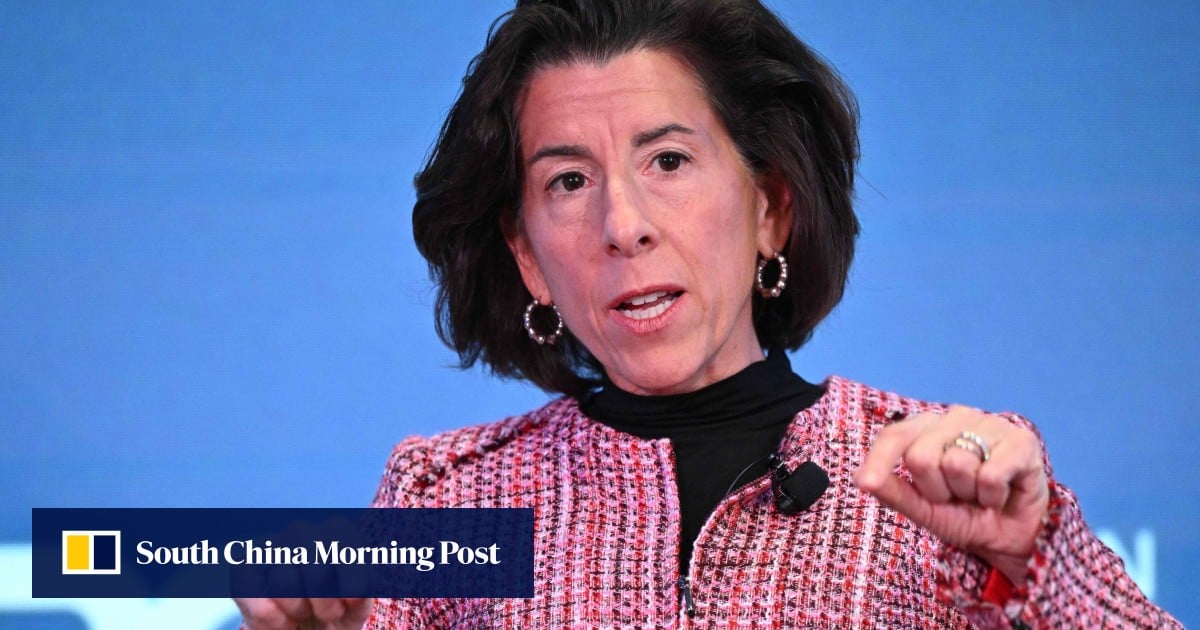Amid China tech advances, US national security is ‘foremost’: top Biden official

The US Commerce Department has not publicly announced the decision, and it did not respond to a request for comment.
When asked on Wednesday to comment on the matter, Raimondo called Huawei a risk while refraining from offering direct remarks about either Qualcomm or Intel.
The decision arose after Huawei last month unveiled its first AI-enabled laptop, the MateBook X Pro, which runs on Intel’s newest processor, the Core Ultra 9.
In recent years, the US government has placed several Chinese companies, including Huawei, on multiple blacklists.
The president has vowed to implement measures to shield American manufacturers from Chinese state subsidies and the product gluts resulting from them.
“Because Chinese steel companies produce a lot more steel than China needs, [Beijing] ends up dumping the extra steel into the global markets at unfairly low prices,” Biden said last month at a campaign event. “They are cheating.”
The Commerce Department was working closely with the Office of the United States Trade Representative to “identify where are we most vulnerable and what actions could we take”, she added.
The search was on, she added, for “any evidence of China dropping the price, which would distort the market and make it impossible for US chip companies to compete”.
Related
EU denies picking on US tech giants, says US also…
BRUSSELS (Reuters) - Europe's new tech rule aims to keep digital markets
H-1B Visa 2025: How and why US policy shift may…
Recent changes in US H-1B visa policies have sparked significant concern within the Indian IT professional community hoping to work in America. However, the a
Alibaba Group (BABA) Stock: Chinese Tech Giants Gain $439 Billion…
Chinese tech stocks have gained over 40% this year, adding $439 billion in valueChina’s “7 titans” are outperforming the US “Magnificent Seven” tech s
The Global Spread of Protectionist Policies That Squeeze American Tech…
An increasing number of countries in recent years have begun targeting America’s leading technology firms with policies touted as measures to promote fair com













